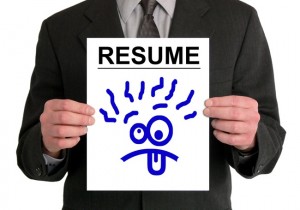#CareerAdvice : #ResumeWriting – 5 Things that your #Resume Can’t Tell an Employer. Great Read!
When you’re hunting for that next big career move, your resume will play a big part in your success. But you can’t rely on it to do all of the heavy lifting in your job search. Sure, it’s your No. 1 personal marketing tool, but there are still many valuable traits that your resume can’t convey to an employer. A resume can’t demonstrate how good of a networker you are, or whether or not you’re good at cultivating relationships.
Here are five things that your resume can’t convey, and what you need to do to showcase those skills.
HOW MOTIVATED YOU ARE
Anybody can write, “I am super motivated” on their resume and cover letter. Lots of candidates do precisely that. But this statement alone doesn’t convince the recruiters and employers you are approaching. They’ve probably seen it on 20 resumes before they’ve even had their lunch.
When it comes to motivation, actions speak louder than words. If you fire off a resume with a generic cover letter and then fail to follow up with the recruiter, that doesn’t scream “motivated candidate.” However, if you take the time to craft a tailored cover letter that shows your passion for your work and the company you are applying to, you’ll appear a lot more genuine and enthusiastic.
And if you want to show how motivated you are, add the recruiter on LinkedIn or follow up after a few days. If you do it right, those gestures can make you stand out from the pack.
WHAT YOU’RE LIKE TO WORK WITH
Your resume can lay out the facts, detail your experience, and demonstrate your expertise, but it’s a difficult medium for reflecting your personality. Plenty of hiring managers would rather work with an easygoing team player who is happy to roll their sleeves up when the going gets tough than a stubborn, so-called expert who refuses to support their team and shies away from stepping outside their comfort zone.
If you can get face or phone time with recruiters or hiring managers, it’s much easier to get some of your personality across and allow them to build a positive picture of how you’ll behave in the workplace. And if you’re attempting to make a big jump upwards in your career, your attitude toward your work can distinguish you from candidates who may have a lot more experience than you.
Like this Article ? Share It ! You now can easily enjoy/follow/share Today our Award Winning Articles/Blogs with Now Over 2.5 Million Growing Participates Worldwide in our various Social Media formats below:
FSC LinkedIn Network: www.linkedin.com/in/fscnetwork
Facebook: http://www.facebook.com/pages/First-Sun-Consulting-LLC-Outplacement-Services/213542315355343?sk=wall
Google+: https://plus.google.com/115673713231115398101/posts?hl=en
Twitter: Follow us @ firstsunllc
Question: Want the ‘the best/current articles/blogs on the web’ on Job Search, Resume, Advancing/Changing your Career, or simply Managing People?
Answer: Simply go to our FSC Career Blog below & type(#career, #leadership, #life) in Blog Search: https://www.firstsun.com/fsc-career-blog/
What Skill Sets do You have to be ‘Sharpened’ ?
Continue of article:
WHY YOU ARE LEAVING YOUR CURRENT/LAST ROLE
You have a limited amount of space on your resume, and you need to use it to sell yourself. But this means that you don’t get a chance to answer one of the biggest questions for recruiters, “Why are you leaving your current job?”
The answer to this question can change an employer’s opinion of you. For example, if they suspect you are leaving on bad terms or were forced out due to bad performance, you’re unlikely to get a response from your application.
You need to make it clear that you’re leaving for positive reasons, and because you’ve outgrown your previous position. You can do this in your cover letter by stating reasons why your current role is not giving you the progression you need (while being careful to speak about your current employer in a positive light).
Secondly, it will pay dividends to pick up the phone and talk with the recruiter to stress this point. Having a direct conversation will allow you to convey your passion for progression and convince them that you’re moving for the right reasons.
WHAT YOU’RE HOPING TO GET OUT OF A NEW ROLE
Your resume does a great job of representing your past and present, but it doesn’t reveal your ambitions for the future. Another burning question that recruiters will want to know is, “Why do you want to work here?”
And again, the answer could have a significant impact on the success of your applications. A candidate who shows genuine interest in a company and role will have a considerable advantage over somebody who seems to be applying just because they need a job. If you think about it from the employer’s point of view, would you rather employ people who genuinely admire your company, or people who wouldn’t care if you went bust tomorrow? It’s a no-brainer.
When you are applying for roles, you need to show recruiters that you’re genuinely interested in the companies you are applying to. So, firing off the same cover letter template to hundreds of vacancies isn’t going to get the best results. You need to research each company and role you’re applying to as much as you can and show recruiters that you’re interested in the company and passionate about the job you’re trying to land.
As a job seeker, you need to have a good resume. But you can’t rely on it alone to sell your talents. Don’t forget to complement it with written, spoken, and in-person communication, to get across some of your less-tangible attributes.
Author: Andrew Fennell is an experienced recruiter and founder of London-based CV advice website StandOut CV and author of How to Write a CV.
FastCompany.com | March 1, 2019



